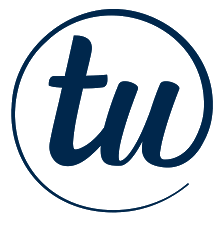The following is an interview conducted with the 3 executive producers at Titan TV, Gabriela Machuca. Vanessa Siguenza, and Drew DeCoud.
Kemdi:
Could you guys please state your majors and your job positions here?
Gaby:
I’m a first-year master’s in communications and I’m an executive producer at Titan TV.

Vanessa:
I’m a graduate student in the communications program and an executive producer for Titan TV.
Drew:
I’m a first-year master’s student in the MFA screenwriting program, and I’m an executive producer here at Titan TV.
Kemdi:
What caused you to get involved with Titan TV?
Gaby:
I’ve always really enjoyed being involved on campus, and I wanted to get a lot more experience being on a TV set or a film set. I have a lot of experience in theater, and yes, I have done a lot of indie projects or helped out with friends and student productions, but I wanted to have a little bit of a stronger grasp on producing and creating more content. So for me, everything at Titan TV is great, you can get a lot of hands-on experience all over the set.
Vanessa:
I just really wanted to learn. I first started in print journalism and then worked my way into PR and then I also worked in production a bit, which I think expanded my skills. When I got involved with the CBS News internship program, I became more intrigued about what the process is like from conception to broadcast. So at Titan TV, I wanted to help push stories specifically of underserved students. and also to highlight the fun events that have happened on campus.
Drew:
Yeah, so my main focus has always been the film, but TV has proven to be a good training ground for film and just media in general. So, being engaged with Titan TV has been an incredible learning experience, and I hope to continue with it until I graduate.
Kemdi:
The three of you are all pursuing your master’s. What made you decide to continue your education past undergrad?
Gaby:
Well, I got my bachelor’s and sociology, and I originally wanted to do something in terms of being a therapist or maybe even a social worker, but the reality is that that work is really hard, and it takes a lot emotionally. I just had a look back on what else interested me. I had always pursued the arts, always loved the arts, but I still wanted something that would be a little bit more concrete. So I debated a lot about what kind of master’s I would get. I landed on communications because it gave me enough width professionally to bounce around in terms of positions. So if something in terms of producing, acting, or writing didn’t work out, I could work in some other form within communications and media.
Vanessa:
My experience with Cal State Fullerton runs in the bloodline. My mom’s a Cal State Fullerton alumna, my sister will be attending soon, and after this semester, I’ll be an alumnus too. I wanted to expand more of the mass communications research theory inthe track. to learn about how research can help me with researching stories for production, or if I wanted to go down the route of PR researching like a client, or for print journalism getting to know more about the people’s stories and uncovering the truth of whatever that story is, and I think so far this program’s been beneficial for me in the sense that I can apply some similar theories to the production scene, too.

Drew:
For me, the film industry I know is notoriously difficult. You know, you got so many people driving out to Hollywood, trying to sell a script or get a role or, find a connection to get into the industry. I felt that if I established a foundation in academia, that would give me a much better shot at establishing myself in the industry and giving me a much stronger foundation to work off of. You have this sense of community and a cohort of people that you establish relationships with. So once you graduate, you’re not just going out alone.
Kemdi:
What would you guys say is the most challenging and the most rewarding part of your job?
Gaby:
For me, both answers are the same. The shows. It takes a lot of work in terms of communicating with everyone and maintaining tabs on things. Okay, let’s get the scripts done, let’s get the talent in, let’s make sure the editing is where it needs to be, let’s re-edit if we need to. But that whole process is also so rewarding because you get to meet amazing people. If that’s what the episode is about in terms of outreach, I think also developing the relationships within the team is great because everyone is passionate and wants to do the best work that they can do. So that collaboration always beautifies the process, and then having it out is so exciting and so rewarding to have everyone’s work and input.
Vanessa:
I think, similar to Gabby, I would add just maintaining that sense of urgency to get these to meet these deadlines, too. From what I was able to tell at CBS, they were constantly on the move, always pushing out new scripts; they had to get things set up in time for the corresponding civil lives. So I think just trying to emulate a similar fashion in the way that they operated within the bureau is something that I would like to implement here. It’s been a cool experience so far, getting to learn everyone’s strengths and also learning from other people who have been in the production or broadcast side more than I have. So it’s been really rewarding, learning about that.
Drew:
I think the most challenging part has been trying to establish a balance because you have work, you have classes, recreation, a personal life, et cetera. With Titan TV, there are so many details that you can overlook, whether it’s grammar errors in a script, inaccuracies, not having enough crew members, learning all these new programs and applications, and working with different types of technology that you have not might not have ever encountered before. I see Titan TV episodes kind of like a film, right? You have different pieces of a puzzle, and you have the privilege of getting to craft those pieces. You put them together, and it results in this cohesive piece of art.
Kemdi:
What are you guys hoping to accomplish during your tenure here?
Gaby:
I like challenging the shows, so seeing what already exists and seeing how I can push it and add to it. So I would say my biggest goal is to try to renovate as much or as little as I can to make things a little bit more creative, make things a little bit more fun. and just collaborating with everyone. I can’t stress that enough of you have to find that balance of letting people input things, but also knowing where to set the boundary of, okay, this is still what the vision of the show or the content is, but how do we allow everyone to have a say, how do we allow everyone to have a voice? Because you can’t have creativity without having your team. So, for me, I think just establishing that in terms of our body of work, but also creating that workplace where everyone feels like they have a voice and a say is what I want to leave as my little legacy.
Vanessa:
I think adding to that, I would like to amplify everyone’s strings, whether it is, editing or script writing or being just like a camera operator, anything that appeals to them and they want to improve on, I want to help them in any way possible, even if I’m not the most knowledgeable person about that. I’ll find a way to help support them and have them write that down eventually in their resume as one of their strongest qualities. I think another thing that I would like to accomplish is helping jump-start some of the older TV programs, like Al Dia, and how that award-winning news program helps students of color here, and it makes Cal State Fullerton stand out from other CSUs because they don’t have a Spanish-run broadcast program. So I think just bringing the opportunity to students and also proving that as a Hispanic serving institution, these students can um use their voice and use this platform would be a great thing to implement and eventually see where the legacy of all of this goes.



Drew:
On a smaller scale, I’m currently creating a game show that I hope will stand the test of time and be a fun experience for students. On a larger scale, I would hope that Titan TV kind of serves as a pipeline into the film and TV industries, helping folks establish their foundation.
Kemdi:
You’ve talked a lot about your goals, and what you wanna see for the TV station, but what do you wanna see for yourselves career-wise?
Gaby:
I mean, I love storytelling, so I think truly my heart lies with being a storyteller my whole life. I love acting, I love being able to embody the story and be a vessel. So I am continuing that pursuit and producing, I want to help people, especially underrepresented communities, and be able to tell really important stories. Producing, acting, and maybe writing but I know I need to learn and work more on that, I think it would also be great just to pull from like my own experiences or lessons that I’ve learned and pass on that wisdom in that way, way in the future, once I feel like I have enough of an education and a background, I’d love to teach just to then, you know, be able to tell and like share what I’ve learned. I don’t believe in gatekeeping. I think it’s important to pass on whatever lessons you’ve gathered to the people who need it the most. So yeah, overall just being a storyteller and eventually in my elder days sharing that knowledge and wisdom.
Vanessa:
I know I want to stay in the communications field, so my mission throughout grad school was to experiment with public relations, print journalism, and broadcast, and see what I feel would be a good challenge. I wanted to learn everything in a sense and become a jack-of-all-trades. After graduation, I would either like to work in a PR firm or if I wanted to be in broadcast, but I would like to start at a smaller market and highlight the stories of communities of color that aren’t typically shown on broadcasts, so I think that would be my main focus. If I wanted to down the line, I could teach, but for right now, I think I want to have more hands-on experience and help community stories get heard.
Drew:
I think my answer is pretty simple, but since I was 15 and probably before that I knew I wanted to be a professional filmmaker, mostly writing and directing and that’s pretty much the same now. TV production might be another option, too, so we’ll see, but primarily film.




